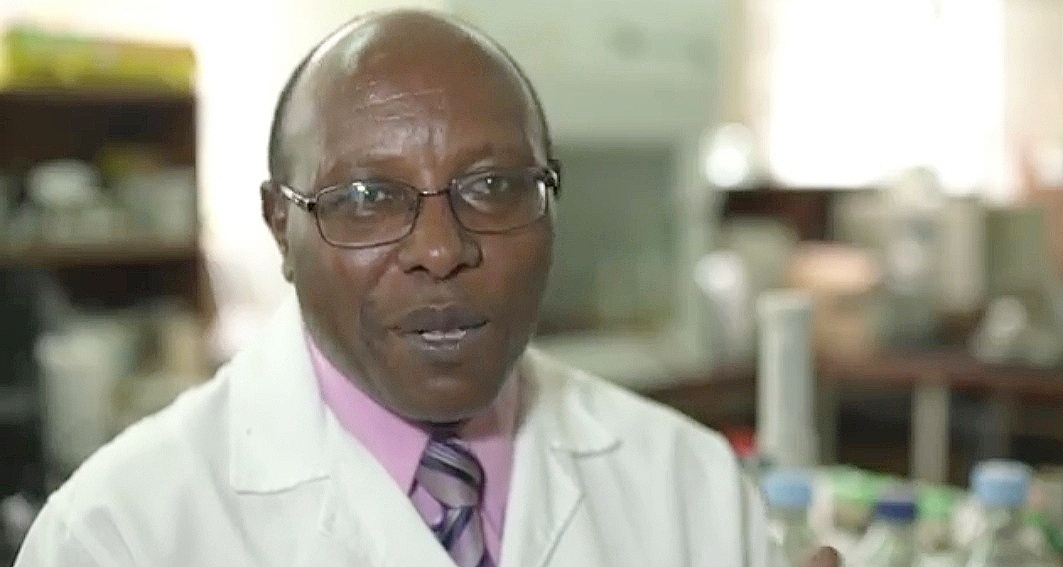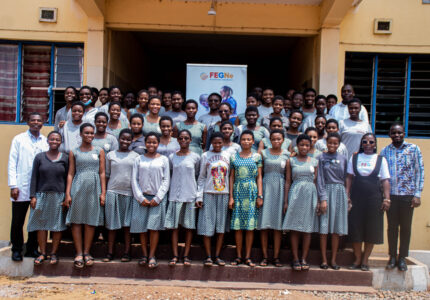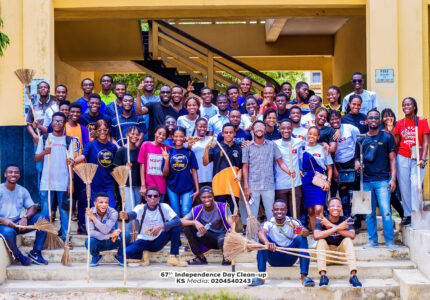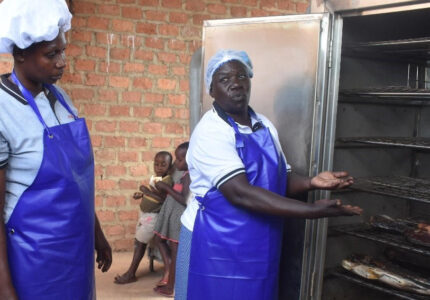Professor Paul M. Kimani, (once chairman of the Crop Science Society of Kenya), is a geneticist and a plant breeder, whose impact on Africa’s Agricultural development cannot be downplayed.
He has extensive research and teaching experience in genetics and plant breeding, agronomy, seed science and technology, which he has taught to both undergraduate and graduate students in the last 29 years.
He has worked for several years with smallholders in most of the high, medium potential, and arid and semi-arid areas of Kenya in developing, testing of new varieties on-farm and development of informal seed dissemination channels and farmer participatory research.
His research work resulted in the first early maturing pigeon pea in East, Central and Southern Africa. He also pioneered work in onion improvement which yielded the first locally developed, high yielding, disease resistant onion cultivars in 1994.
Together with his collaborators, they innovatively demonstrated that local production of onion seed (for which traditionally, Kenya depended wholly on importation), was feasible. His work on bean improvement, resulted in the first early maturing bean variety which is also disease resistant, and has high yield potential. Several of his other developed varieties, have contributed significantly to food security and poverty alleviation to resource-poor families in the region.
His new market-led breeding strategy for common bean, has been adopted by the National Agricultural Research Institutes (NARIs) in 18 countries in East, Central and Southern Africa. He has also helped to develop and disseminate several improved varieties of garden pea, maize inbred lines, and potato, some of which are now being studied as models of informal technology transfer by regional and international research centers.

Love for Science caught up with the founding chairman of the Crop Science Society of Kenya for an interaction on his work as a breeder, and the way to go as a people with regards to agriculture.
As a breeder, tell us processes you go through to come up with a new variety.
There is product development, which is what the breeders do. They go to the market, find what is important to the consumer and they spend years – on the average 7 to 8 or even 10 years, to develop one acceptable variety. And the costs vary. It takes hundreds of thousands of Dollars.
Once the product is identified, the next stage is to have it officially released. But usually, there’s a regulatory authority in every country. Because the product you develop as a breeder is a commercial product like any other, it is regulated by the government or a regulatory body to check if it meets the standards for the market.
When they get to the final approval stage, they should be patented because once you introduce something of novelty, you get intellectual property rights. Those rights permit you to exploit your variety.
Next, the intention is to reach your clientele. To do this, you can choose to do it in your own capacity, to multiply and market your product. That’s one avenue. The second avenue is to commission other people to multiply your product and sell it, and then you make returns on that. This is usually done through technology rescission agreements, and it brings in resources to both the individual breeder and their institution.
What challenges prevent your innovations from going through as expected?
The problem of the technology not going through to reach as many people as possible, is because of the absence of the requisite systems I have mentioned. The breeder does not have the capacity to multiply any of his technologies to commercial levels; they need to partner with others. Those partners too must invest, because it’s like starting a new process. When you have a product that’s ready for the market, you are really back at the scratch again. You are at point zero because you need to multiply, you need to promote it, you need to package it, create source of awareness, and ensure it is properly packaged, labeled and distributed to your targets.
Now, very few breeders can afford that, so this is why things are going slow. But I think there are many initiatives. In the past, what used to happen was that the government would take up a variety, and try to multiply it and give it out for free to people as part of fighting poverty, food insecurity or whatever it may have been. But it is becoming increasingly clear that this is inefficient.
Governments are not designed for business. They do better governing and facilitating others to do business. Governments should get out of business and rather facilitate others to do it because they (governments) are horribly inefficient and things never reach the people.
You see also, when you give people seeds of a new variety for free, you are killing the market. Because, first of all, people don’t value free things. It is not sustainable; you can distribute them this year, maybe for a political reason or whatever, but then, you are creating something wrong called dependency. The next year, if the government doesn’t dole out those free seeds, they will say “we couldn’t plant this year because the government did not give us seeds.”
So Africa must move away from these government-oriented freebies. The government is best at governing and collecting taxes and ploughing those taxes back into the local economy to help the people by promoting indigenous businesses to perform. That way, the technologies will get to the market. And this is not just theory – go to all the advanced economies, that’s what they do. You don’t expect the Government of Japan, or governments in Europe, to go sharing out varieties and seeds like that. No, it creates unhealthy systems. So this is something we need to run with, and facilitate.
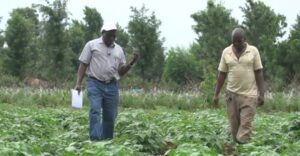
What about your products being given out for free under relief programs?
You see, there are those cases where it’s a relief program. You know relief is different from just giving something to the people for political reasons. Because, for example, if people are facing some unusual climatic or other catastrophes, then relief is an expected action, and the government has a duty to help the people under these conditions. That is called emergency management; but that only usually happens to less than one percent of the population. That’s not what we are talking about. What we are talking about is business to ensure that new products are delivered to people through business networks.
You know in Africa, there is the perception that most farmers are poor. How then do they get the resources to access some of these technologies?
There’s no farmer who doesn’t have money, (laughs). That’s a myth! What needs to be done is, package seeds in affordable quantities. For example, we packaged bean seeds in weights of 50g and 100g and people actually bought them. The cost was such that everyone, including a school kid, could afford.
When they buy it the first time and see that it is good, they buy more and even sell some off to their neighbors, and they make money out of that. Next time, instead of buying 50g or 100g, they’ll be in a position to buy half a kilo or even 20 kilos; that’s the way to grow business. We should never have the mentality of poverty. It is a killer, it disables people, makes them perennially dependent. We should never create a dependency syndrome. It is the most counter-productive thing you can do with farmers and it kills demand. This means if somebody is trying to sell seeds and provide it on a regular basis, they can’t do that because the government (by giving seeds out for free) kills the market. What we want is a system where the government facilitates development of unique and quality products and facilitates other people to do the business side of it. After that, the production will be freely available.
You see, when you go to any town, you can be sure the only reason people are stocking up on items like soap or even bread, is because they can make money from them. The day they cannot make money on bread, there will be no bread on the shelves.
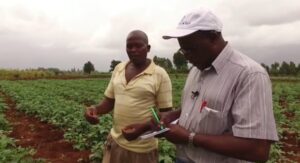
How do we change the preference for free things as a people?
If you want to destroy people, give them and teach them to depend on free things. That’s a sure way, even when you look at it from a scientific point of view. If you give people food, you kill their capacity to produce food. If you give a child clothes and everything else, especially, when he or she is able do so, he/she will never learn. This is an African thing. You go to North America, nobody gives you anything for free. You go to the 27 EU countries, nobody will give you anything free. If you go to Latin America or Asia, it is the same. We are the only people who believe that you can survive by being given, and it has put us in a very awkward way, and that’s why in the first place, we are in the condition we are.
So, we need to encourage commercial operations, linkages and networking, because if somebody can make money selling bread, then selling whatever product is possible, we can be sure.
Go to any city, Accra, for instance; the only reason people are hawking products in the streets is because they can make money. The day they cannot make money, there’ll be no hawking there.
This is a general philosophy and I think it will help.
How do we ensure continuity in the breeding industry?
There’s a saying that if you see a herd of cattle without young bulls or heifers, it is a dying herd. The same thing applies to people. If we were mentored to be who we are today, then we have a responsibility to mentor others. We must all accept that we have an operational period, and it is very important for us to train young people, nurture and mentor them to take over.
That was one of the unique features of African Plant Breeders Association Conference. It was a pure mix of all the more experienced breeders and scientists and the very young ones. These are the kinds of things that should be encouraged, because we should all understand that there’s an exit point. So, if you have something you would want to continue or even grow into a bigger thing, you need to teach it to others.
Look around the world; many of the big multinationals are actually family businesses; look at the Johnsons and KFCs. People should know that it is not just enough for one person to prosper, develop or grow, but that it is more important to train others, so that they can take over gradually when they exit.
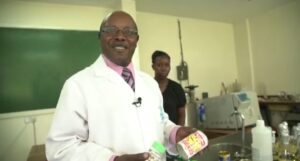
What can we do to promote Agriculture in Africa to a level where we produce enough to feed ourselves?
First of all, there’s a lot of trade in agricultural commodities like coffee, cocoa, wheat, beans and others worldwide. What is shocking is the proportion of the contribution of Africa to these international markets.
You see, we’ve been looking inward, instead of looking outward. For example, I know Australia is not traditionally a grower of chickpea but they found a very good international market for chickpea. They promoted chickpea for export to India and other countries where it is popular, and in about 10 years, Australia is the second largest producer of chickpea from ground zero. Had they looked inside only, they would have relaxed because the market is tiny or non-existent there.
This is my point – Africans should not just grow things because they are going to eat them. That’s nonsense, absolute nonsense. In the age of our forefathers, that made sense, but we are in a different age now. Grow things because they (the produce) have a market. Once you have money in your pocket, you decide what you want to eat because then, you can afford it. We no longer grow things because we can eat them, no. The truth is that, as a farmer, your family and you cannot consume just an acre of sweet potatoes or yam from your farm. I grow maize, and I can hardly eat a tenth of what I grow. So the point is this; it is not a sustainable way to think of growing things, simply because you eat them. Grow them in future because you can do business, and make money.
What you’ll eat or drink, you’ll decide when you have the money in your pocket. And that is why I said during the conference: “Show me one person, who participates in the market and is food insecure”.
The people who eat the finest beef or the finest lamb or the finest vegetables – do you think they are those who till the land? No, they are not. The ones who drink the finest milk, don’t even know what a cow looks like other than from a picture.
That is where the rest of the world is; you do things because it is business, and you grow things in the farm because you can sell them.
So, we shouldn’t close our eyes and keep thinking like Stone Age people. Cocoa is big business worldwide – how much of the money from cocoa comes back to Ghanaian farmers?
You know, that Ghanaian or Ivorian chocolate should be the premium chocolate, because these two countries control the world on this one, but so far it’s other people doing it. Yesterday, I ate Ghanaian chocolate and that’s the way to go. The way Africa has to think is: We have the product, we’ll partner with other people out there who have the technology but the product will be made here, we’ll export from here.
Farmers here get a tiny fraction of the worth of their produce, and we should change from just being suppliers of raw material, to making finished or value added products for export. That way, it will solve a lot of our problems because we’ll have jobs for our children, we’ll have monies for our economies and there will be no more dependency on aid, and, we will have money to improve infrastructure, build schools, hospitals and so on.
It’s the strategy that matters.
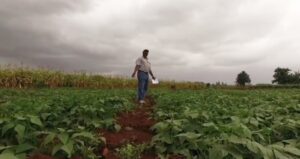
Professor Kimani has been the recipient of more than 15 competitive research grants and awards from USAID, Rockefeller Foundation, International Development Research Center (IDRC), Canada, Bill and Melinda Gates Foundation, International Center for tropical Agriculture (CIAT), European Union, Koret Foundation, Kilimo Trust, Irkhouse Trust, and the governments of Belgium, Germany and Israel in the last 23 years. In a recent symposium in Arusha, Tanzania, USAID, which funds the Regional Bean Program, recognized Prof. Kimani as one the two top breeders in Africa.
He is the author of more than 150 refereed scientific publications and book chapters. He has co-authored four books and one monograph, more than 90 conference papers, and has written more than 70 technical reports based on his research work.
Profile credit: uonbi.ac.ke

